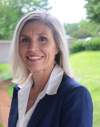AACOM Awards Grants to Propel Innovation in Osteopathic Medical Education
Published August 21, 2024
News Press Release
Awardees to investigate AI in UME, URiM admissions and palpatory ability
IMMEDIATE RELEASE
(Bethesda, MD) – The American Association of Colleges of Osteopathic Medicine (AACOM) is pleased to announce the recipients of its 2024 Research Grant Program. Each of the three selected research teams will receive a grant of up to $5,000 to advance the field of osteopathic medical education (OME).
"These research grants are a testament to AACOM's commitment to advancing osteopathic medical education and addressing the evolving needs of our healthcare system,” said AACOM President and CEO Robert A. Cain, DO. “By supporting innovative projects that explore key areas such as AI curriculum integration to enhance residency readiness, diversity in medical school admissions and the incorporation of technology in osteopathic manipulative treatment training, we are empowering educators and students to shape the future of osteopathic medicine. I am confident that the insights gained from these studies will have a lasting impact on the quality and inclusivity of osteopathic medical education."
The AACOM Research Grant Program is designed to foster innovation and excellence in OME by supporting projects that address critical areas in medical education and institutional research. The 2024 grant recipients and their projects include:
Introducing Health Informatics Curriculum Through Case-base Simulations: For Undergraduate Medical Education
- Primary Investigator:
Janet Lieto, DO, FACOFP, CMD, CPP, University of North Texas Health Science Center at Fort Worth - Texas College of Osteopathic Medicine (UNTHSC-TCOM) - Co-Investigators:
Amany Hassan, UNTHSC-TCOM
Lin Nelson, MBA, UNTHSC-TCOM
Nelumdini Samaranayake, PhD, UNTHSC-TCOM
"The integration of health informatics with AI through case-based simulation for undergraduate medical education is a transformative shift that not only enhances the curriculum but prepares future healthcare professionals to lead in an AI-driven world,” said Dr. Lieto. “By equipping students with the knowledge, skills, and ethical understanding of AI, we are empowering them to revolutionize patient care and drive innovation in healthcare. This investment in experiential learning ensures they are ready to navigate and shape the future of medicine, delivering smarter, more effective, and ethically sound care."
Empowering a Relational Professional Identity Among Medical Students to Increase Under-Represented in Medicine (URiM) Applicants
- Primary Investigator:
Kari Dugger, PhD, Edward Via College of Osteopathic Medicine - Auburn Campus (VCOM-Auburn) - Co-Investigators:
Mayra Rodriguez, PhD, MPH, VCOM-Auburn
Ellen Wilson, MEd, VCOM-Auburn
"This project’s goal is to increase recruitment from public Alabama undergraduate schools to increase diversity of our incoming medical students to better represent our state’s communities,” said Dr. Dugger. “This includes lived experiences, socioeconomic determinants, ethnicity, culture, and religious backgrounds. Our recruiting medical students will have the opportunity to build meaningful relationships with a range of undergraduates interested in healthcare. The second piece to this project is to create learning experiences for our recruiting medical students to address the challenges healthcare workers could face when treating patients from different backgrounds than their own. The purpose of this targeted recruitment and training is for developing physicians to recognize the influence of cross-cultural healthcare competencies and enhance their professional identity formation. Notably, we want them to better understand where their patients come from and what their challenges may be."
Correlation Between Visual Spatial Intelligence and Palpatory Ability Using 3D Printed Models
- Primary Investigator:
Natalie Freeman, PhD, Lincoln Memorial University-DeBusk College of Osteopathic Medicine (LMU-DCOM) - Co-Investigators:
Anne Marie Zeller, DO, LMU-DCOM
Ian Schultheiss, OMS, LMU-DCOM
"We are deeply thankful that our project has been approved for the AACOM Medical Education Research Grant,” said Dr. Freeman. “This achievement reflects the innovative spirit of our institution, driven by the dedication of our students, especially Student Doctor Ian Schultheiss, and the mentorship of esteemed faculty like Dr. Anne Marie Zeller. Through the integration of 3D printing technology, we aim to enhance osteopathic medical education and the clinical preparedness of future residents.”
Each grant project is scheduled for an 18-month research period, after which the findings and progress will be shared with the broader OME community.
To learn more about current and past AACOM Research Grant awardees, visit our grant awardees web page.
About AACOM:
Founded in 1898, the American Association of Colleges of Osteopathic Medicine (AACOM) is the leading voice for the education and training of physicians who practice osteopathic medicine in settings across the medical spectrum—from primary care to the full range of medical specialties. We support our member colleges of osteopathic medicine in their efforts to attract and train individuals who are fueled by a desire to make a difference in our healthcare system by treating the whole person and building a future emphasizing health and wellness for all people. Today, more than 36,000 future physicians—25 percent of all U.S. medical students—are being educated at one of our 41 accredited colleges of osteopathic medicine, encompassing 66 teaching locations in 35 states. To learn more about AACOM, please visit our website.
Contacts:
Joseph Shapiro
Director of Media Relations
(240) 938-0746
jshapiro@aacom.org
Christine DeCarlo
Senior Manager of Media and Public Affairs
(202) 603-1026
cdecarlo@aacom.org

